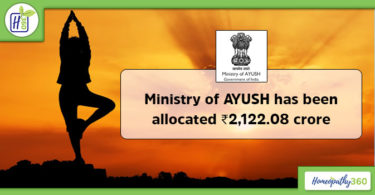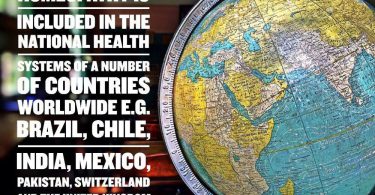 The government today approved amendments to the National Medical Commission (NMC) Bill including removing the contentious provision of “bridge course”, which would have allowed practitioners of alternative medicines to pursue allopathy, an official statement said.
The government today approved amendments to the National Medical Commission (NMC) Bill including removing the contentious provision of “bridge course”, which would have allowed practitioners of alternative medicines to pursue allopathy, an official statement said.
Observing the need to act strictly against unqualified practitioners, the government approved an amendment to make the punishment for any unauthorised practice of medicine “severe” by including a provision for imprisonment of up to one year along with a fine extending to up to Rs five lakh.
The Union cabinet chaired by Prime Minister Narendra Modi also approved that the final MBBS examination would be held as a common exam throughout the country and would serve as an exit test to be called the National Exit Test (NEXT).
Thus, students would not have to appear in a separate exam after MBBS to get licence to practice and ‘NEXT’ would serve as the screening test for doctors with foreign medical qualifications in order to practice in India, the statement said.
According to the statement, the provision dealing with “bridge course” for AYUSH practitioners to practice modern medicine has been removed.
The provision was strongly opposed by health organisations, including the Indian Medical Association, which said allowing AYUSH doctors practise modern medicine would promote “quackery”.
The health ministry, however, had stated that the provision seeks to address “acute shortage” of doctors in India.
“It has been left to state governments to take necessary measures for addressing and promoting primary health care in rural areas,” the statement said.
PTI had reported yesterday that the health ministry has “omitted” the contentious provision of bridge course proposed in the NMC Bill and also replaced the provisions of the National Licentiate Examination with a ‘Common Final Year MBBS Exam’ and the term National Licentiate Examination (NLE) with National Exit Test (NEXT).
A parliamentary panel, in its report earlier this month, had said that the bridge course should not be made a mandatory provision while recommending penal provisions for those practising medicine without requisite qualification.
The amendment to the NMC Bill comes in the backdrop of its consideration in Lok Sabha on January 2 and subsequently being referred to the Department Related Parliamentary Standing Committee (DRPSC).
The government has considered the recommendations made by the committee in its report tabled in the House on March 20, the statement said.
It also said that the maximum limit of 40 per cent seats – for which fee would be regulated in private medical institutions and deemed universities – has been increased to 50 per cent.
Further, it has been clarified that the fee would include all other charges taken by the colleges.
“Responding to the demands from states to increase their representation in the NMC, the nominees of states and UTs in the NMC have been increased from 3 to 6. The NMC will comprise 25 members of which at least 21 will be doctors,” it said.
Another major concern gathered during discussion with stake-holders was the wide range of monetary penalty, ranging from one-half to ten times the annual fee recovered from a batch, to be imposed in a graded manner on a medical college non-compliant with the norms.
“The clause has been replaced with a provision which provides different options for warning, reasonable monetary penalty, reducing intake, stoppage of admission leading up to withdrawal of recognition,” the statement said.
Source: http://www.business-standard.com/article/pti-stories/govt-approves-removal-of-provision-of-bridge-course-in-nmc-bill-118032801268_1.html




